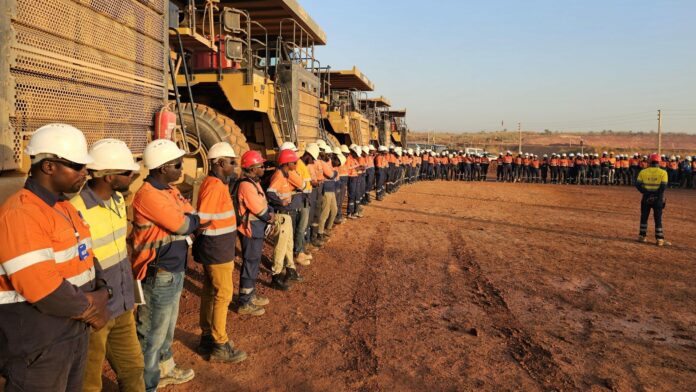
MINERALS Council South Africa has warned wage increases are outpacing productivity improvements, attributing the disparity to overly strong union influence, according to a report by Business Times.
There had been a “decoupling” between compensation and productivity output, added Business Times, citing the mining advocacy body.
These comments followed the publication last week of Statistics SA’s second-quarter employment data. Mining remuneration rose 2.2% quarter-on-quarter to R49.8bn, whilst the broader economy recorded 3.4% annual wage growth, said Stats SA.
The council’s acting chief economist Bongani Motsa told Business Times that mining employees were receiving higher pay relative to the value they generated. This mismatch could fuel inflation, squeeze profit margins, and undermine international competitiveness, he said.
The council pointed to deteriorating gross operating surplus since the pandemic as evidence of the widening gap, noting that labour compensation has climbed steadily since 2016 despite volatile and contracting profitability.
Motsa acknowledged mining faced unique challenges from resource depletion but argued legislation favoured workers excessively. He cited the struggling ferrochrome sector, which has shed jobs since 2014 due to poor competitiveness.
Trade unions dismissed the analysis as one-sided.
The National Union of Mineworkers said the council was merely justifying plans to replace permanent staff with contractors. It insisted members worked diligently underground for salaries dwarfed by executive compensation packages.
Solidarity general secretary Gideon du Plessis said inflation-linked increases often left workers financially worse off, whilst above-inflation rises supported genuine progress. He challenged the council to examine lavish executive remuneration and its impact on sectoral inequality perceptions.
Mining analyst Stephen Meintjes suggested both parties find compromise, proposing labour moderate demands now in exchange for boom-time bonuses later.
The sector added 2,000 positions during the quarter, bucking an economy-wide trend that saw 80,000 jobs disappear, said Business Times.











